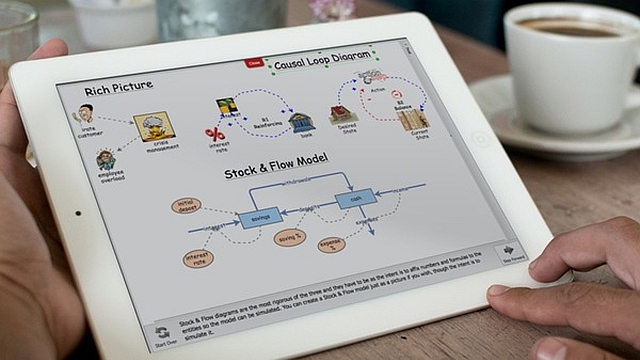
Exploring the science of complexity series (part 22): Conclusions – What do the complexity science concepts offer to those facing international development and humanitarian problems?
This article is part 22 of a series of articles featuring the ODI Working Paper Exploring the science of complexity: Ideas and implications for development and humanitarian efforts.
There are numerous debates as to the applicability of complexity concepts to social, political and economic life. Some authors argue that the concepts are directly applicable to social sciences, others that they provide metaphors that can shape thinking, while the most critical argue that they are simply not applicable outside of the hard sciences. Ison et al.1 suggest that complexity science enables users to bridge natural, socioeconomic and management sciences by serving either as explanations of phenomena or as metaphors which can guide thinking and action. Sokal and Bricmont2 argue that hard sciences are not a stock of metaphors for instant and unqualified use in social sciences. Sellier3 points out the room for backsliding that metaphors afford their authors: when a strict scientific review reveals inconsistencies, they can always fall back on the ‘but it’s only a metaphor’ argument without in fact solving those problems the metaphor was supposed to help them with in the first place.
Paul Krugman, in his analysis of the neoclassical economic model4, argues that it provides a set of useful, simplifying fictions about the world which allow us to cut through the complexities of the real world. In the case of international development and humanitarian work, the main difficulty with such simplifications of complex realities is that they leave aside so many of the important elements of those realities which increasingly beg for attention and explanation.
This is particularly relevant for assessing – at a general level – the applicability of complexity to international development and humanitarian problems. The fact that the world is not predictable, linear and orderly means that interventions based on simplifying fictions – such as neoclassical economics – often simply don’t work. This is not to say that complexity offers new truths – all science is to some extent the process of creating fictions. In our view, complexity science offers a set of useful, challenging ‘fictions’ about the world, which can enable us to better delineate and understand complexities of the real world.
Next part (part 23): Conclusions – How does complexity science differ from existing ways of understanding and interpreting international development and humanitarian problems?
Article source: Ramalingam, B., Jones, H., Reba, T., & Young, J. (2008). Exploring the science of complexity: Ideas and implications for development and humanitarian efforts (Vol. 285). London: ODI. (https://www.odi.org/publications/583-exploring-science-complexity-ideas-and-implications-development-and-humanitarian-efforts). Republished under CC BY-NC-ND 4.0 in accordance with the Terms and conditions of the ODI website.
Header image source: qimono on Pixabay, Public Domain.
References:
- Ison, R., Maiteny, P.T. and Carr, S. (1997). ‘Systems Methodologies for Sustainable Natural Resources Research and Development’, Agricultural Systems 55(2): 257–72. ↩
- Sokal, A. and Bricmont, J. (1998). Intellectual Impostures, London: Profile Books. ↩
- Sellier, M. (1997). ‘Sciences Inexactes et Sciences Inhumaines’, Contribution to Libération. ↩
- Krugman, P. (1996). ‘What Economists Can Learn From Evolutionary Theorists’, A talk given to the European Association for Evolutionary Political Economy. ↩






